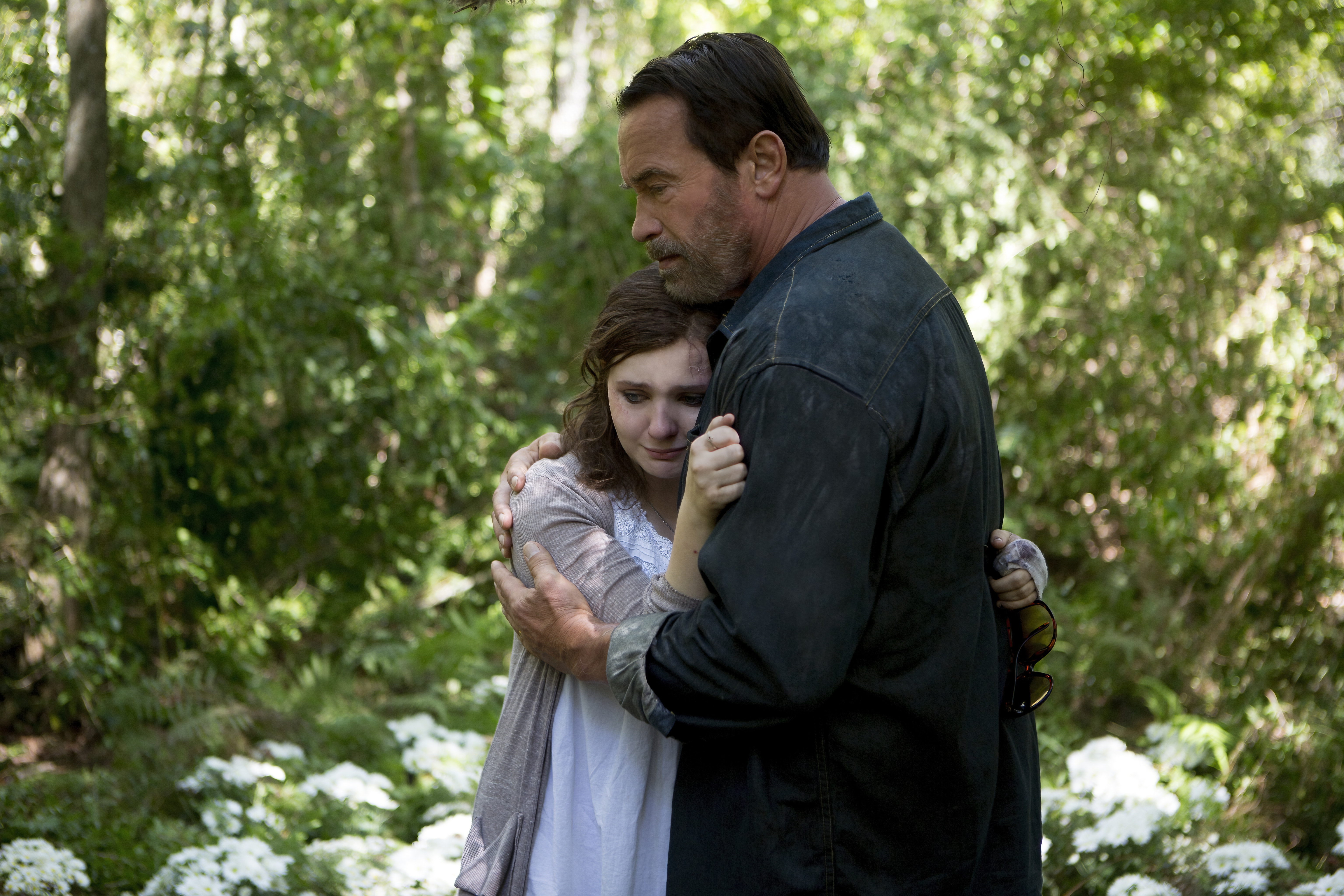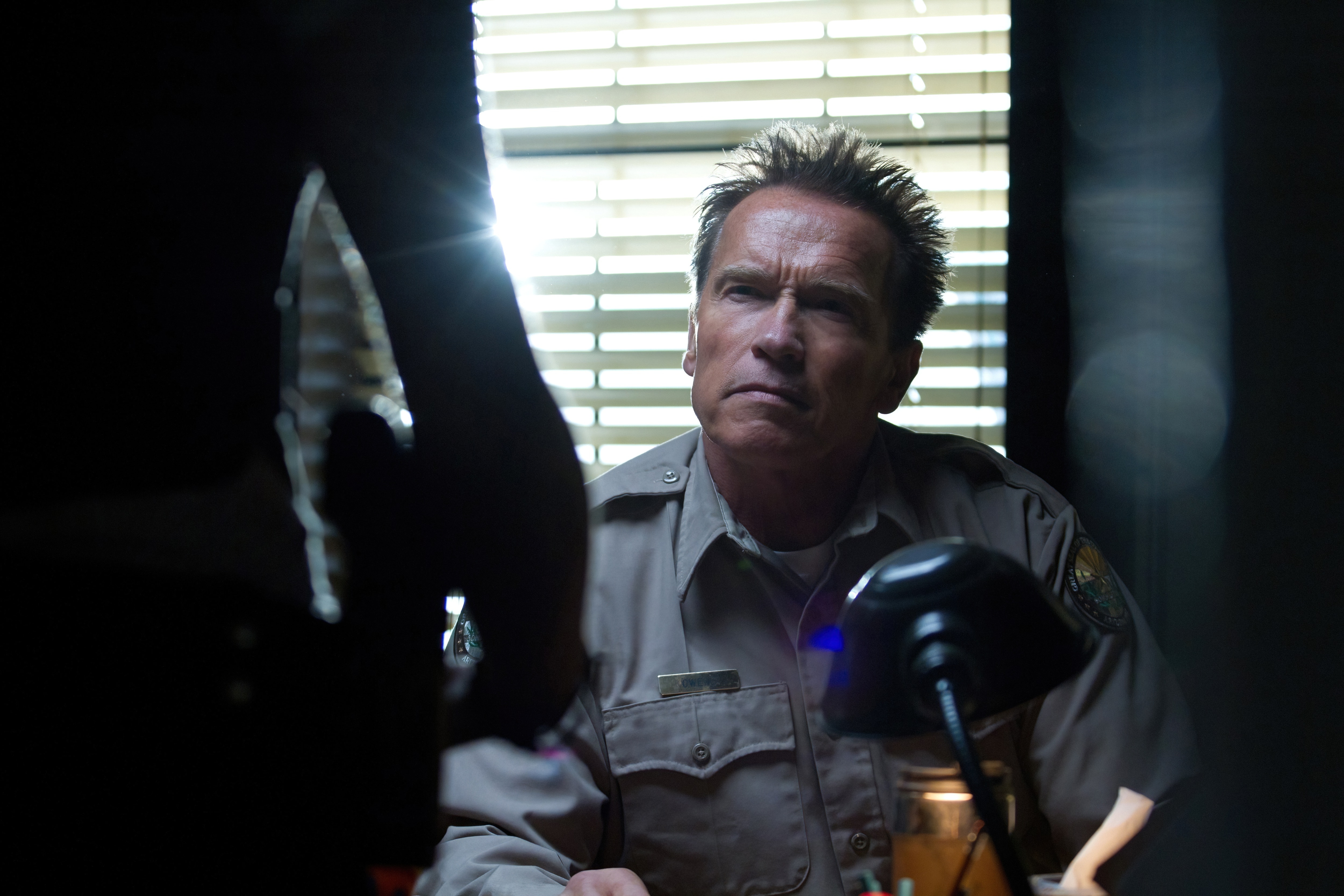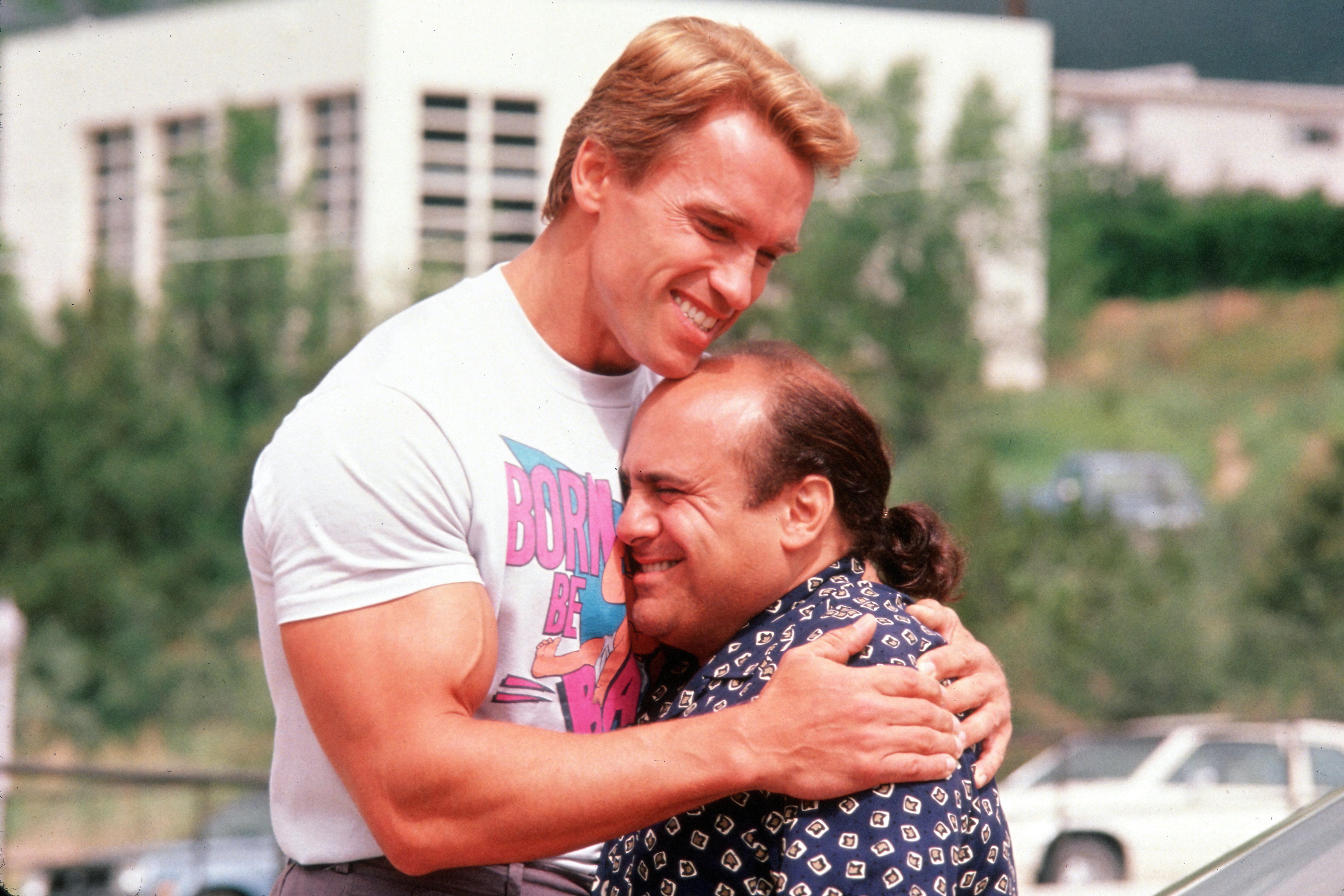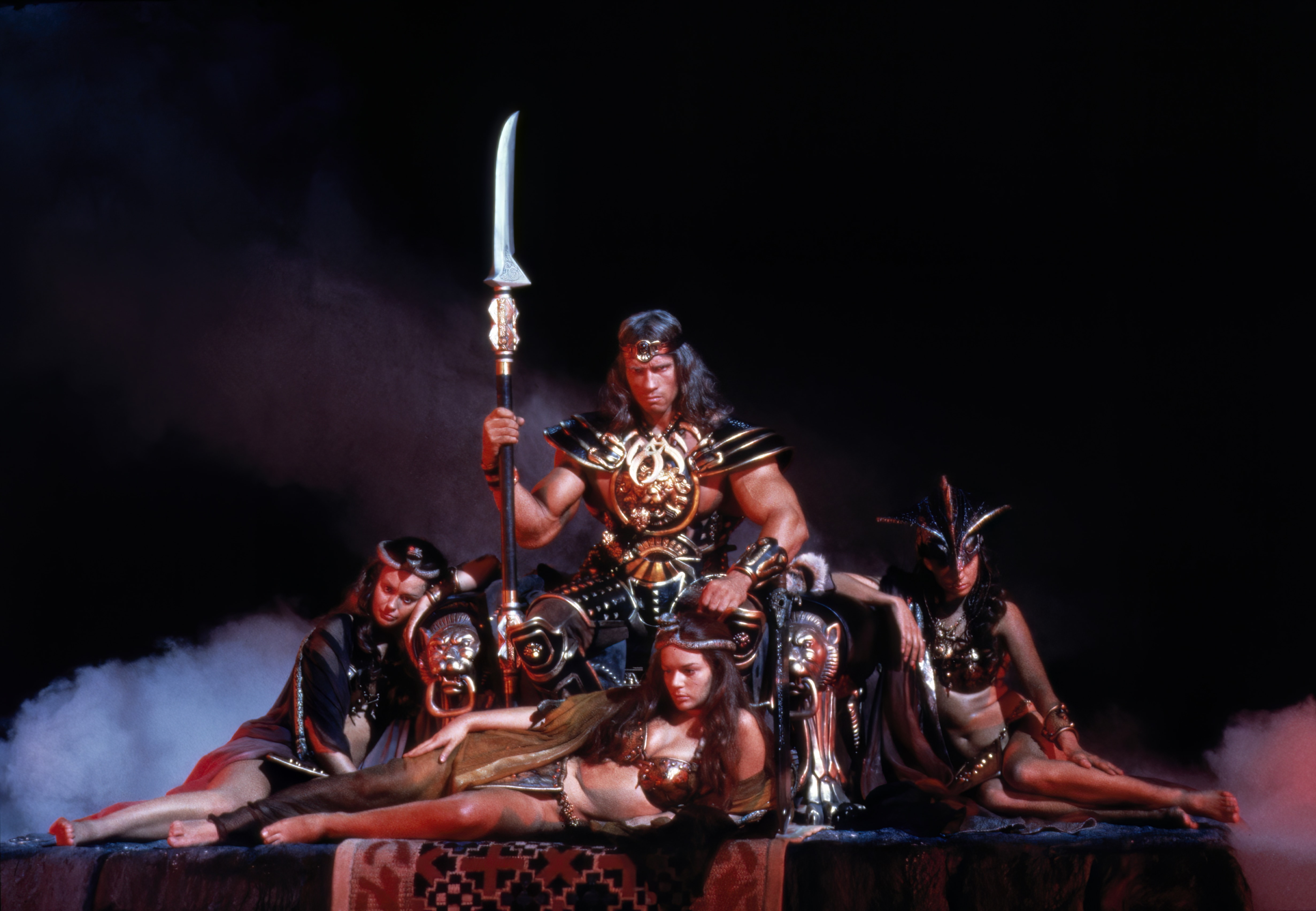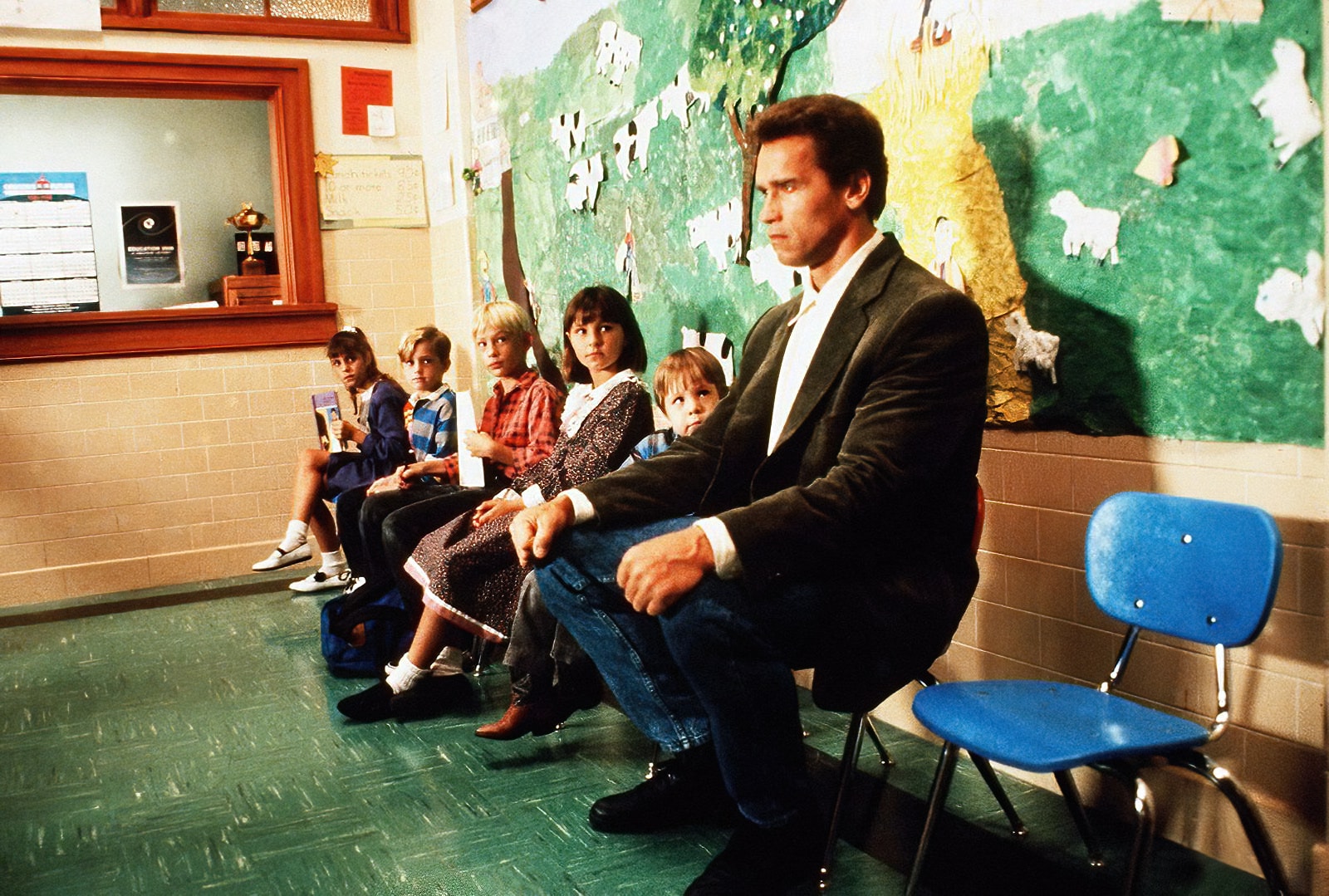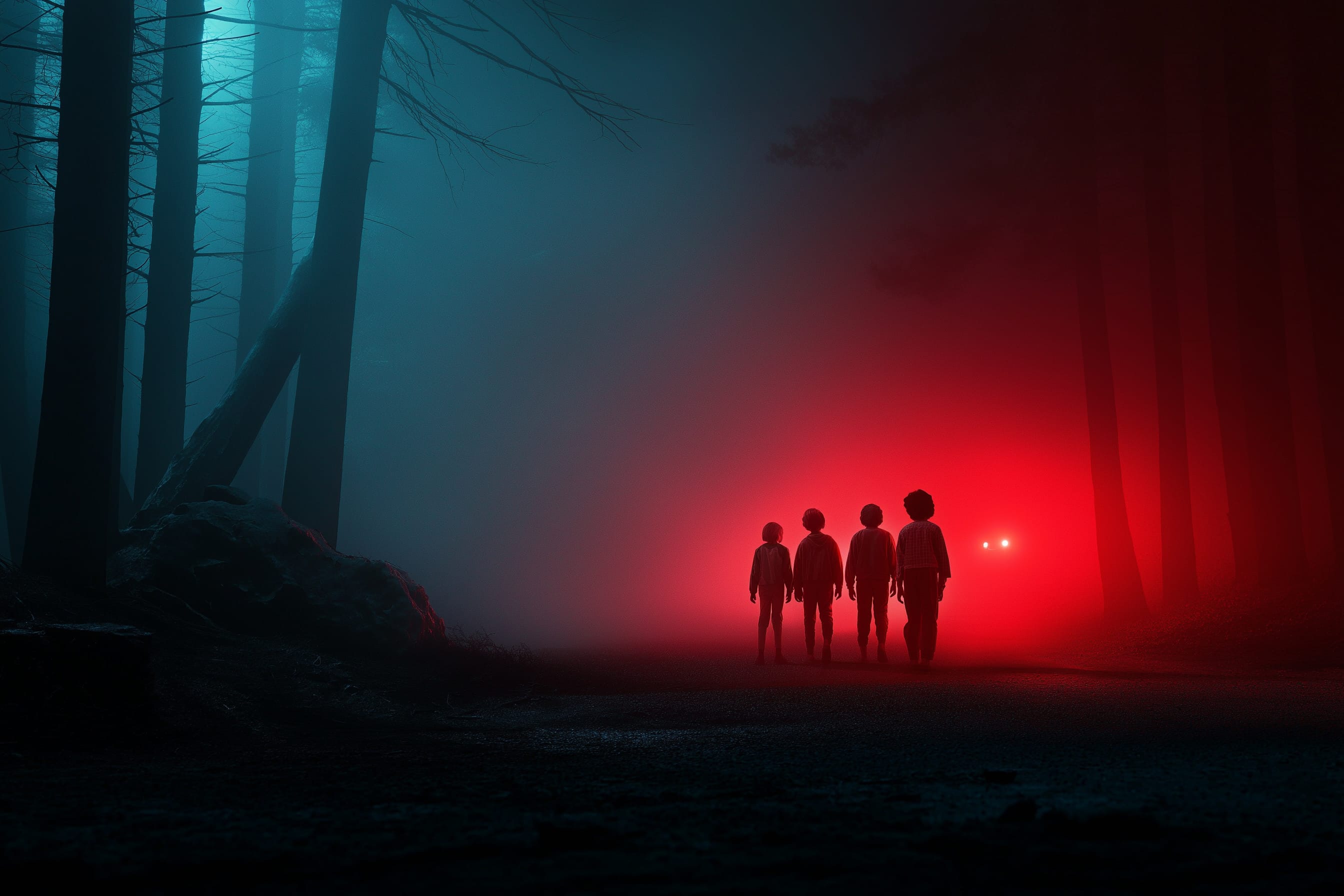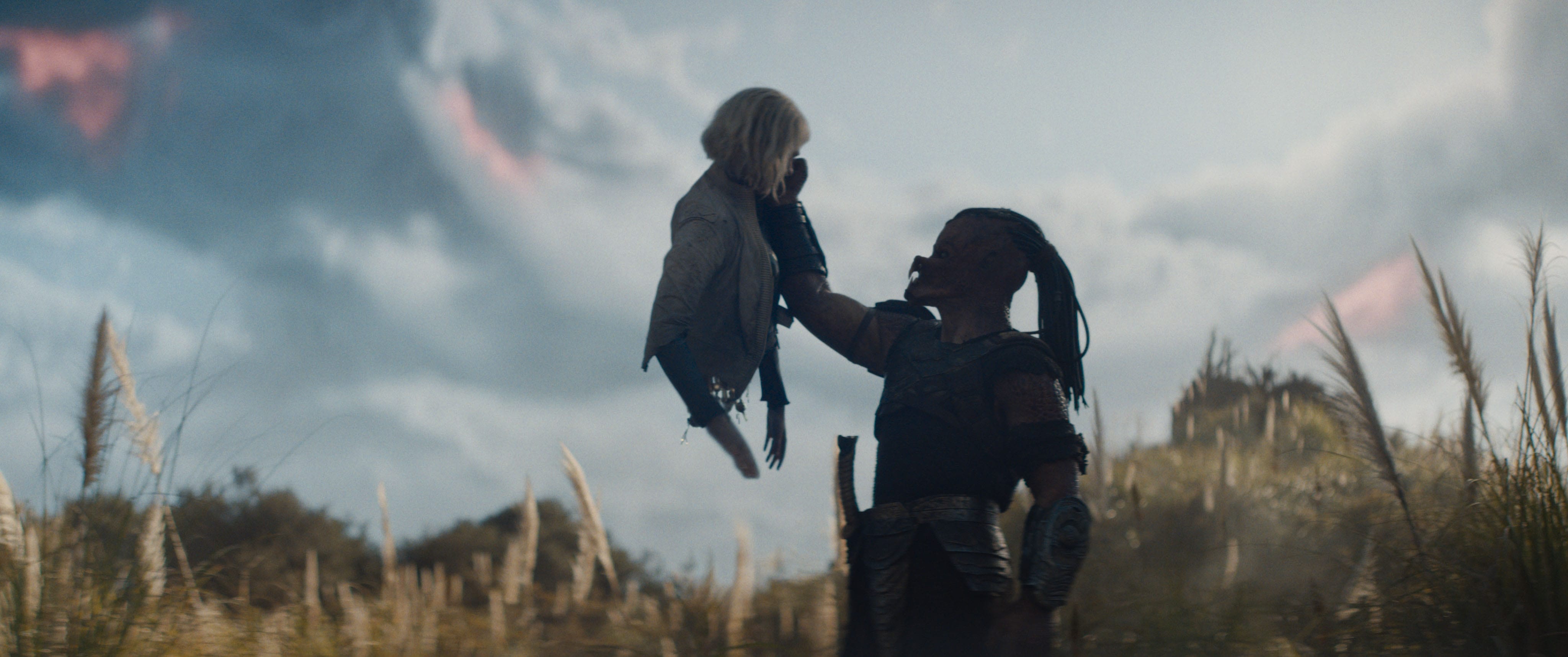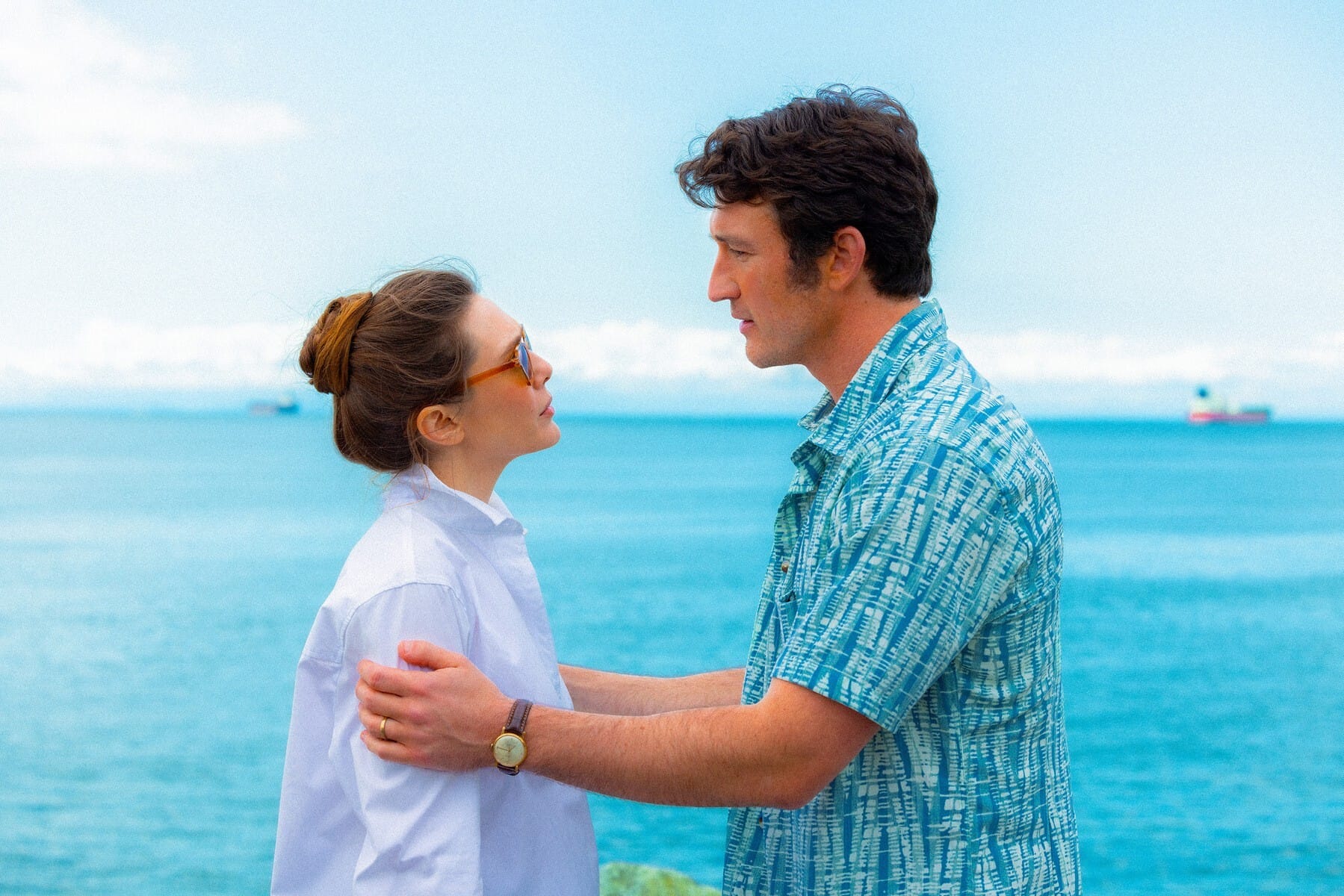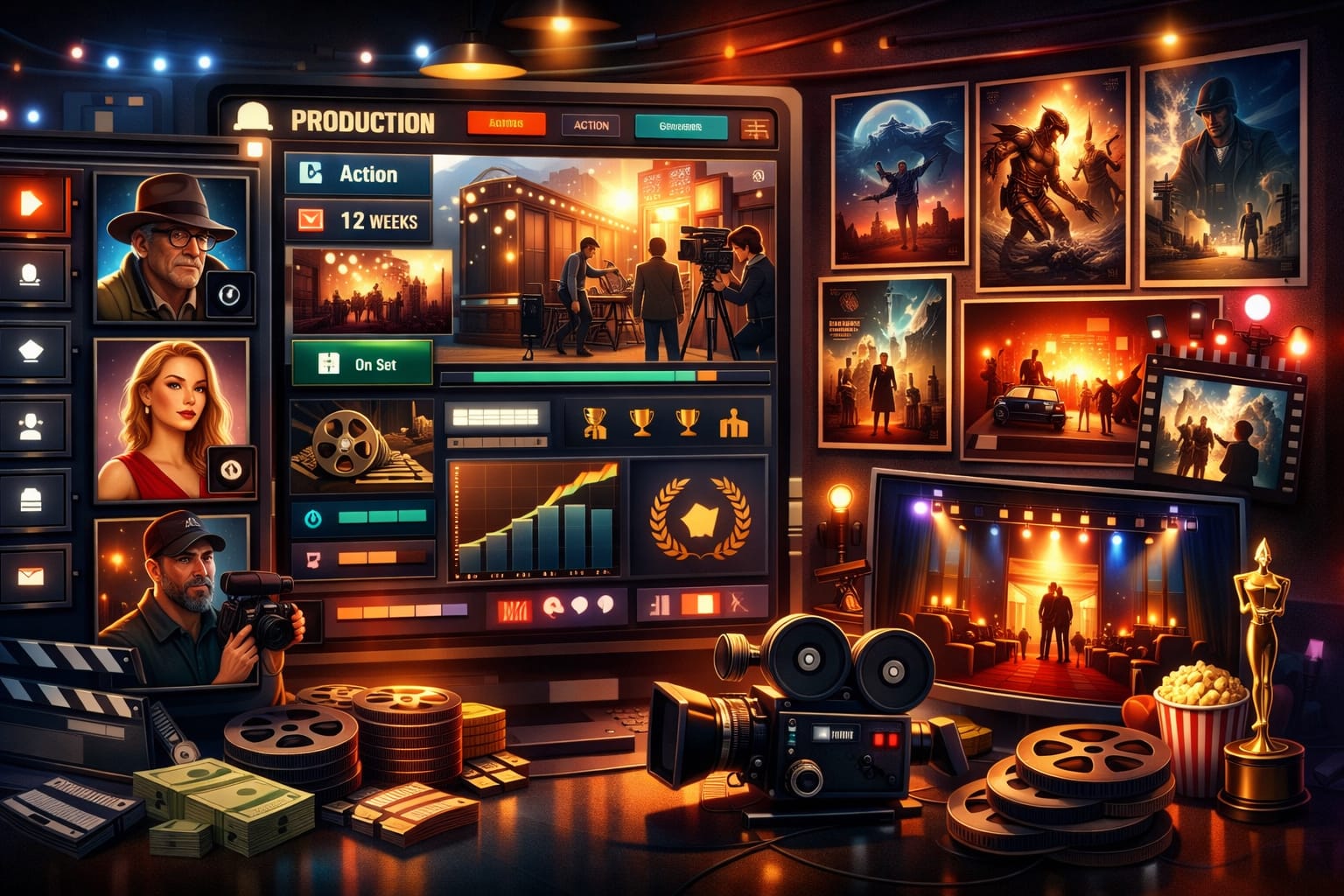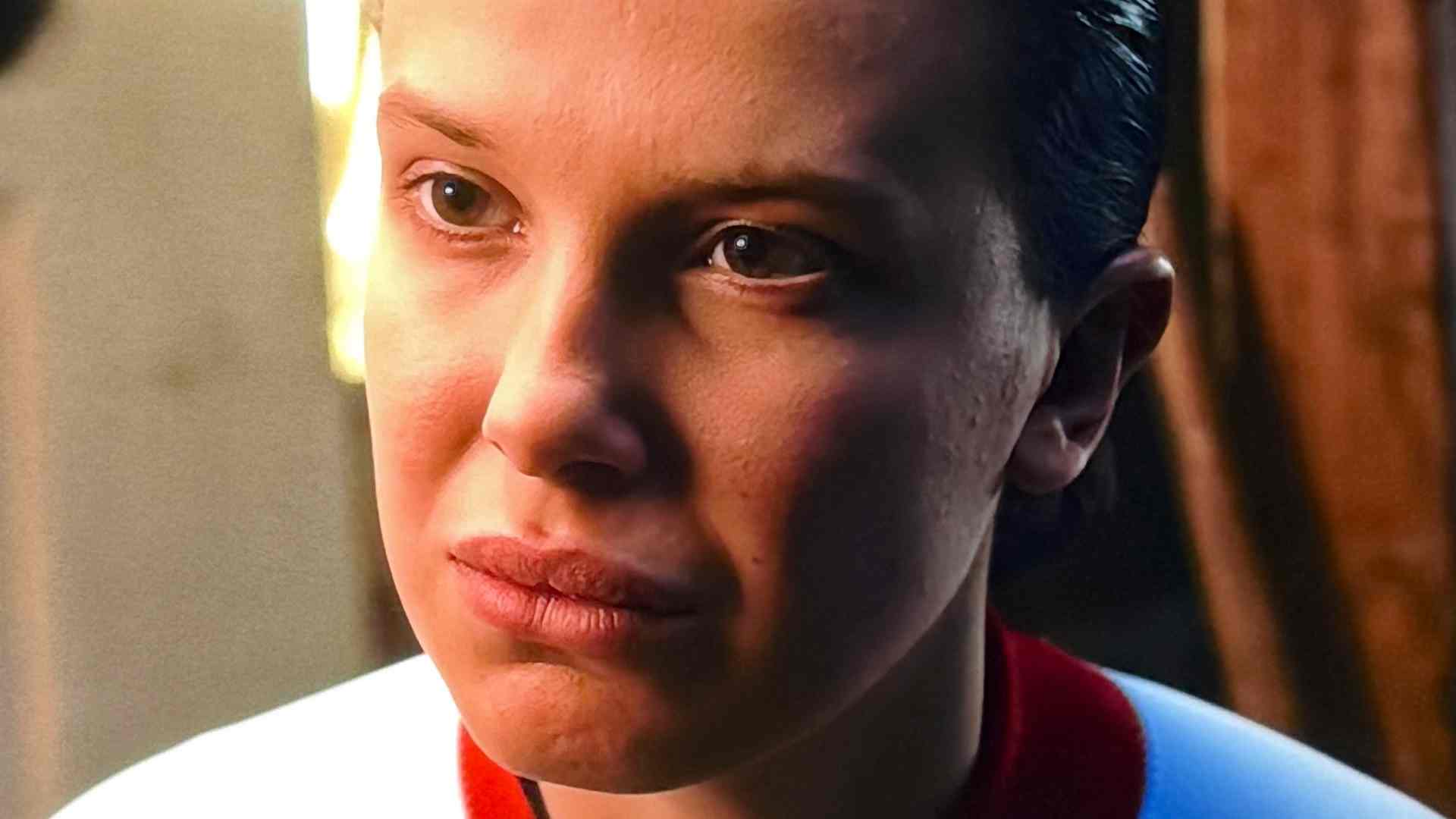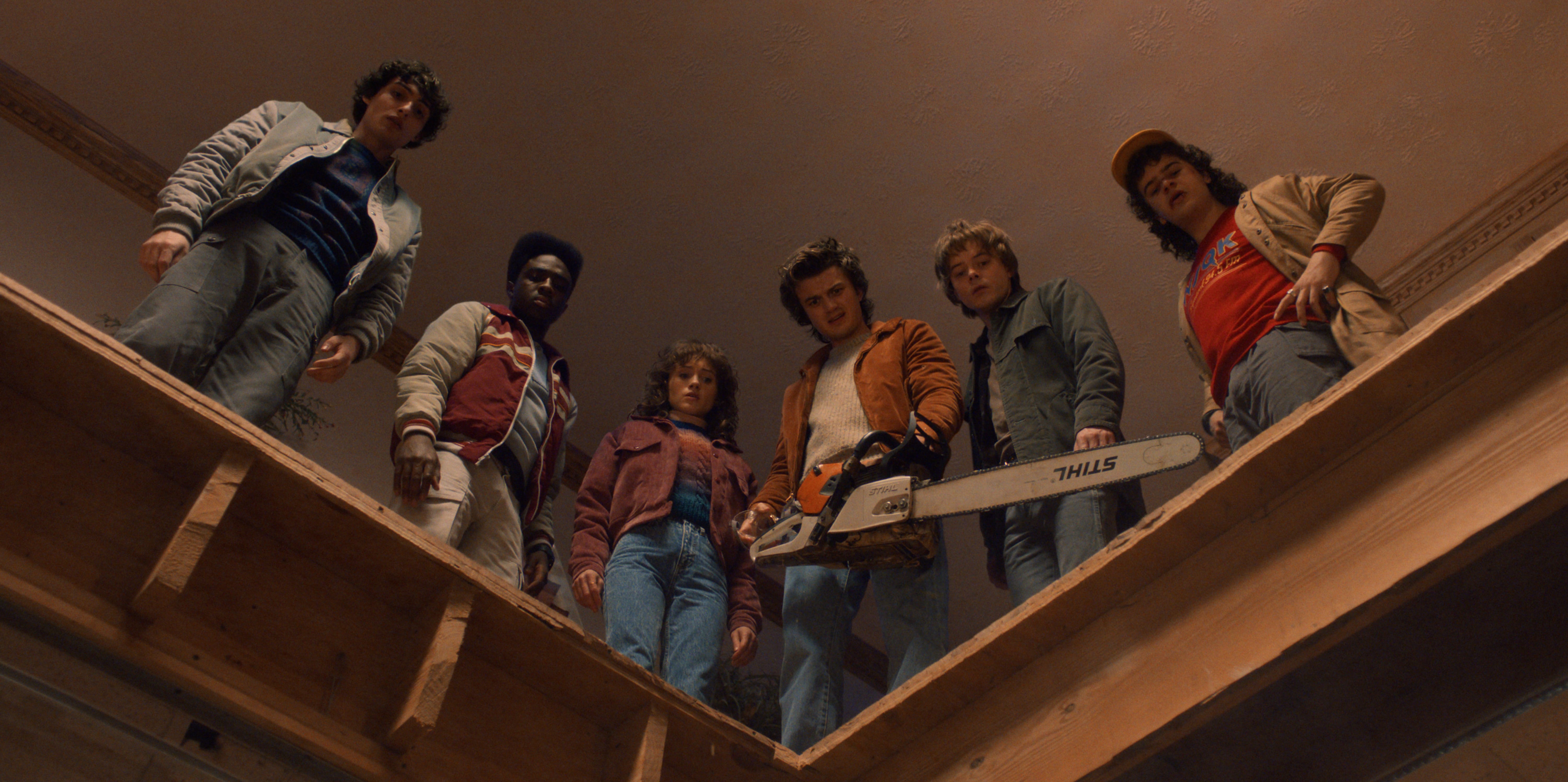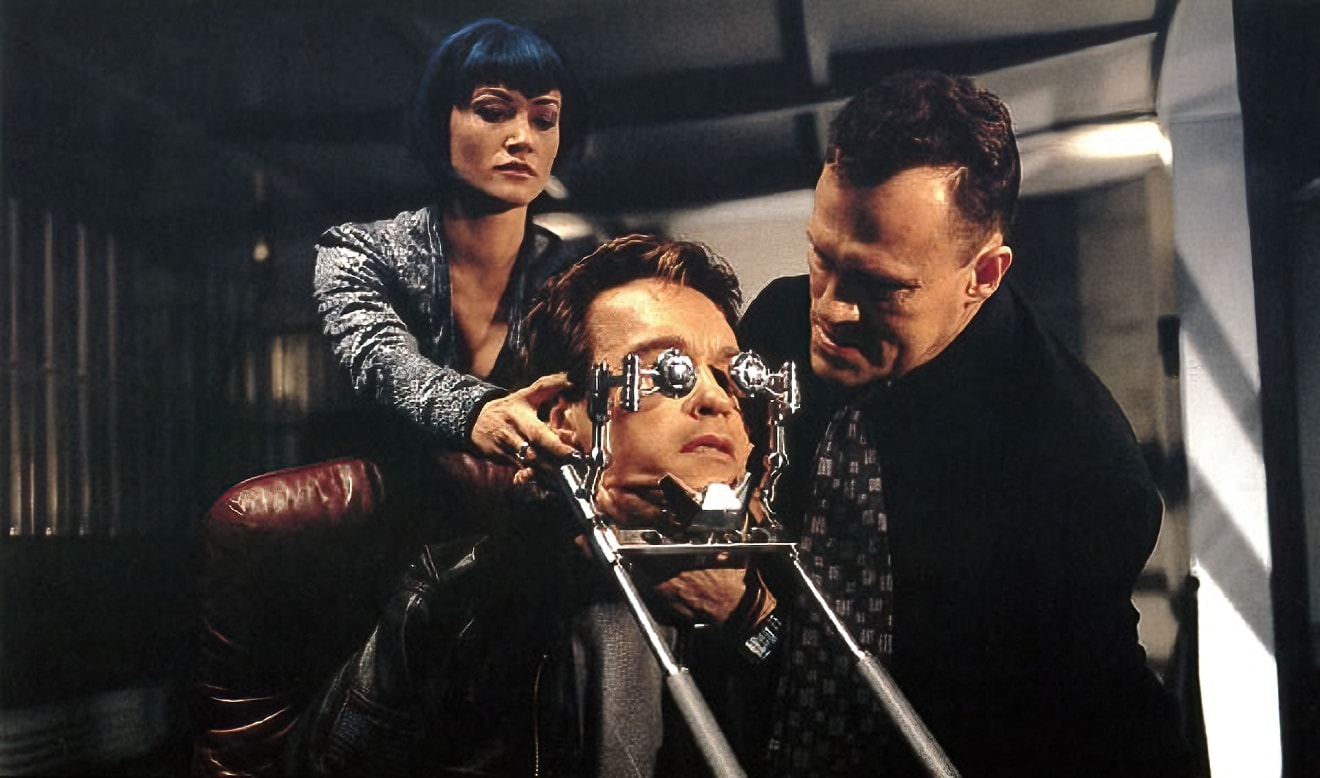
THE 6TH DAY (2000): A Clone of Better Arnold Schwarzenegger Movies
Arnold Schwarzenegger’s filmography is packed with unforgettable moments: the raw, primal power of Conan the Barbarian, the relentless terror of The Terminator, the groundbreaking spectacle of Terminator 2: Judgment Day, and the thought-provoking sci-fi of Total Recall. With The 6th Day, you can tell Schwarzenegger is trying to recapture the magic of his earlier science-fiction hits. Unfortunately, this clone-centric thriller feels more like a cheap knockoff than an original creation.
While The 6th Day isn’t outright terrible, it’s a bland and overly familiar affair that lacks the vision and energy of Arnold’s best work. The movie flirts with interesting ideas about cloning, identity, and the ethics of playing God, but it never dives deep enough into these themes. Instead, it muddles through an overcomplicated plot, generic action sequences, and a Schwarzenegger performance that feels like it’s on autopilot.
A Plot That’s Too Smart for Itself
Set in the near future, The 6th Day imagines a world where cloning has become commonplace—pets can be replaced with genetic copies, but cloning humans remains illegal due to ethical concerns. Enter Adam Gibson (Schwarzenegger), a helicopter pilot and family man who comes home one day to find that he’s been replaced. A clone of him is living his life with his wife and daughter, and soon, Adam finds himself hunted by a sinister corporation trying to cover up their illegal cloning operation.
On paper, this premise has potential, especially for a Schwarzenegger vehicle. Themes of identity and selfhood could have led to a thoughtful sci-fi thriller, and the concept of Arnold squaring off against his own clone has a campy, pulpy appeal. After all, Schwarzenegger has faced off against robots (The Terminator), aliens (Predator), and dystopian governments (The Running Man)—why not himself?
But The 6th Day collapses under the weight of its own convoluted story. The film spends too much time bogged down in exposition, throwing around sci-fi jargon about “syncording” (the process of copying someone’s memories) and “RePet” (a company that clones dead pets). The plot constantly trips over its own rules, leaving the audience confused about how the cloning technology works and what’s really at stake. By the time the big villainous conspiracy is revealed, it’s hard to care.
Arnold vs. Arnold: A Missed Opportunity
The idea of Schwarzenegger playing both the protagonist and his clone should have been a slam dunk. Imagine the existential tension of Arnold facing his double, the moral questions raised by seeing yourself as a product, or the emotional turmoil of wondering if you are the clone. Instead, the movie skims over these possibilities, treating the cloning gimmick as little more than a plot device to justify some awkward twin gags.
When Arnold finally confronts his clone, the moment lacks the weight it should have. Compare this to the rich character dynamics in Total Recall (1990), where Schwarzenegger’s character struggles with questions of identity and memory in a deeply personal way. In The 6th Day, Adam’s relationship with his clone is surface-level at best. There’s no real exploration of how this discovery changes him, no introspection, and no emotional payoff.
Instead of focusing on this intriguing concept, the movie leans on Schwarzenegger’s action-star persona. While Arnold’s charisma has saved many a mediocre movie (Commando, anyone?), here he feels like he’s going through the motions. His one-liners don’t land, his performance lacks conviction, and even the action sequences feel uninspired.
A Lack of Memorable Action
Arnold Schwarzenegger built his career on jaw-dropping, larger-than-life action. From the visceral terror of the nightclub shootout in The Terminator to the pulse-pounding jungle warfare of Predator to the explosive spectacle of True Lies, Arnold knows how to command an action scene. But in The 6th Day, the action is strangely muted and forgettable.
The movie is full of shootouts, chases, and explosions, but none of it stands out. A sequence where Adam flees from bad guys in his helicopter feels lifeless and poorly staged, and the climactic confrontation inside a futuristic skyscraper is generic and uninspired. Even a fistfight between Arnold and his clone, which should have been a standout moment, lacks creativity or tension. Compare this to Schwarzenegger’s brutal showdown with the Predator or his unforgettable fight with the T-1000 in Terminator 2: those scenes were choreographed with precision and packed with stakes. In The 6th Day, the action feels like an afterthought.
A Generic Villain and Supporting Cast
A great Schwarzenegger movie needs a memorable villain. Think of the cold, unstoppable T-1000 in T2, or Alan Rickman’s devilishly charismatic Hans Gruber in Die Hard (OK, that wasn’t Arnold, but the point stands). The 6th Day, however, gives us Michael Drucker (Tony Goldwyn), a corporate billionaire with a god complex and a penchant for monologues. While Goldwyn tries his best to bring some menace to the role, Drucker is ultimately a forgettable antagonist with unclear motivations and no real presence.
The supporting cast fares no better. Robert Duvall, as a conflicted scientist, brings a touch of gravitas to his scenes, but he’s underutilized. Michael Rapaport plays Adam’s best friend and sidekick, but his role is one-dimensional, providing comic relief that rarely lands. And the film’s henchmen—a crew of generic thugs led by a smirking Michael Rooker—are more cartoonish than threatening.
Futuristic Setting, Dated Execution
One of the few saving graces of The 6th Day is its attempt to build a near-future world. There are self-driving cars, holographic advertisements, and a device that can clone your dog while you wait. But while the movie’s ideas are ambitious, the execution leaves much to be desired. The CGI effects are clunky and dated, even by the standards of 2000, and the futuristic gadgets often look cheap and unconvincing.
It’s hard not to compare The 6th Day to Total Recall, which also took audiences to a futuristic world filled with advanced technology. In Total Recall, the production design is immersive and imaginative, creating a world that feels lived-in and believable. In The 6th Day, the future feels like a poorly rendered video game.
Final Thoughts: A Clone of Better Schwarzenegger Movies
The 6th Day is not a terrible movie, but it’s a painfully mediocre one. It’s frustrating because you can see glimpses of what could have been: a thought-provoking sci-fi thriller with a charismatic lead. Instead, the movie settles for mediocrity, squandering its intriguing premise with a muddled plot, uninspired action, and a Schwarzenegger performance that feels like a shadow of his former self.
For Arnold fans, this movie is little more than a curiosity—a reminder of his dominance in the sci-fi genre, but also a clear example of why some projects failed to click. If you’re looking for classic Schwarzenegger, revisit The Terminator or Total Recall. If you’re craving high-concept action with deeper themes, even the underrated Predator sequel (Predators, 2010) has more to offer.
The 6th Day might be about cloning, but it’s no match for the original classics in Schwarzenegger’s filmography. Sometimes, it’s better to stick with the real deal.

 By Jakob Montrasio
By Jakob Montrasio 
